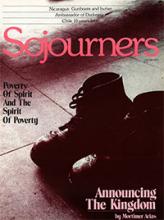His speech was smoother than butter, yet war was in his heart;
His words were softer than oil, yet they were drawn swords.
--Psalm 55:21
Read the Full Article

Already a subscriber? Login

His speech was smoother than butter, yet war was in his heart;
His words were softer than oil, yet they were drawn swords.
--Psalm 55:21
